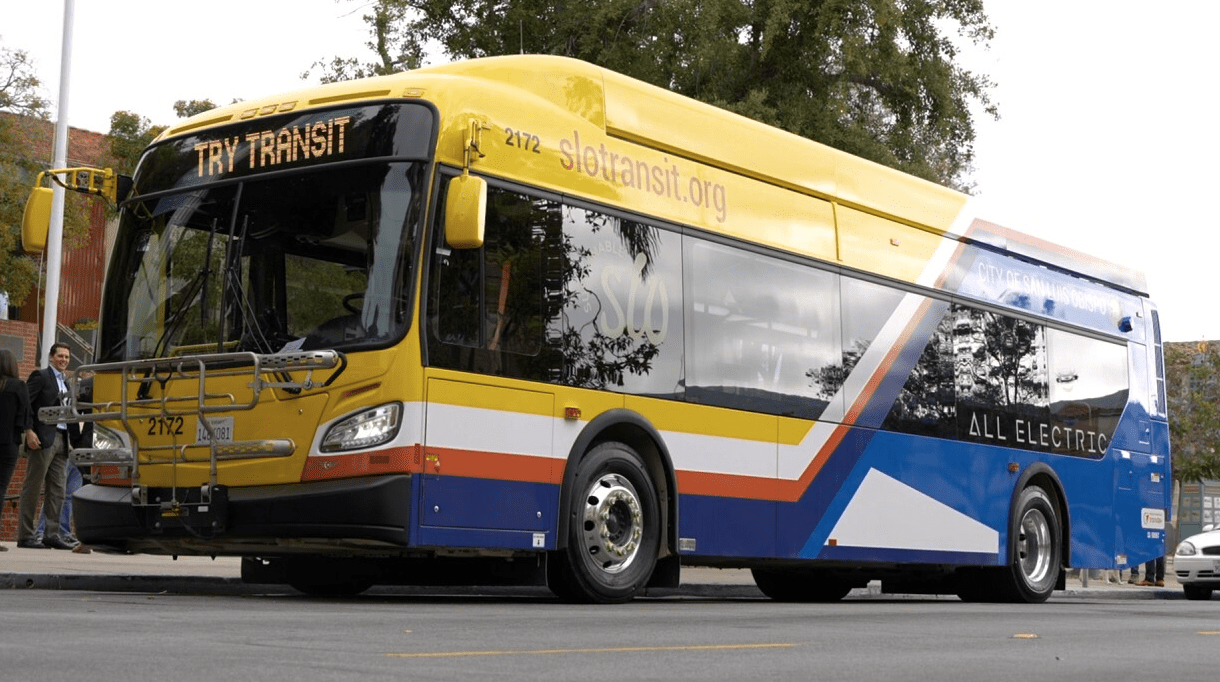Caltrans announced it has approved funding for 136 projects that will provide new bus routes, zero-emission buses, and fare-free transit, among other things, throughout California.
While $192 million doesn't sound like a whole lot of money for 136 projects, it is a boost for a lot of small but important projects moving the needle on providing clean transportation options for people throughout the state.
Projects include:
- $52 million for charging infrastructure to provide fully electric buses on the North San Fernando Valley Transit Corridor in Los Angeles County
- $2.5 million to replace fifteen diesel buses with battery electric buses, and to build charging infrastructure for them, in San Mateo County
- $9.7 million to build a new hydrogen fueling station to support fifty buses operated by the Orange County Transportation Authority
- $17.5 million for free transit tickets for low-income seniors, youth, and people with disabilities in San Francisco
- $1.6 million for the first year of operating a new bus route into the south Fresno area along Church Avenue
- $522,292 to install electric chargers and convert a fleet of buses to zero-emissions vehicles in rural Butte County.
The projects listed above are some of the biggest-ticket items. Numerous other projects range from about $75,000 to a million or so, for things like:
- Bus Rapid Transit operations (AC Transit's downtown Oakland Tempo busline)
- Transit signal priority for buses (AC Transit route in Contra Costa County and in the Santa Clara Valley)
- Many zero-emission bus purchases, including battery electric but also hydrogen fuel-cell buses, plus charging infrastructure (Western Contra Costa Transit Authority, Santa Barbara MTD, Fresno Area Express, McFarland, Ridgecrest, Kern, Tulare County, Victor Valley, Manteca, San Joaquin BRT, Mendocino, Trinity, Butte County, YoloBus, El Dorado, and others)
- Free and reduced fare programs, many aimed at specific population groups including students, seniors, and low-income people (Arcata, Humboldt, Bakersfield, Kern, Kings County, Ventura, Banning, Beaumont, Corona, Omnitrans, San Francisco, Riverside, Escalon, Lodi, Merced, and others)
- Bus stop improvements, including various additions from shelters to bus islands and other safety improvements (AC Transit, Clovis, Morongo Valley, and others)
- Operations funding for new routes, including extensions of current routes (Santa Clara Valley's Eastridge to BART connector, San Luis Obispo, Gold Coast, Fresno, Tehama County, Sacramento, Union City, Santa Cruz METRO, Visalia, Shasta Regional Transportation Authority, Siskiyou, and others)
All of the projects that were awarded funding are listed at the program website.
As can be seen from the above lists, numerous small locally-driven projects are being funded in every corner of the state. The existence of this program, funded by the cap-and-trade program, encourages local agencies to do things they wouldn't otherwise have the funding or capacity for - thus highlighting its importance, small though it is.
The Low Carbon Transit Operations Program is also one of the few sources of state money that can be used for operations. The program was created under S.B. 862 to "provide operating and capital assistance for transit agencies to reduce greenhouse gas emission and improve mobility, with a priority on serving disadvantaged communities."
Under S.B. 862, five percent of the annual auction proceeds from cap-and-trade go to the program. Over the last five years, it has provided around $664 million for transportation projects across the state.






